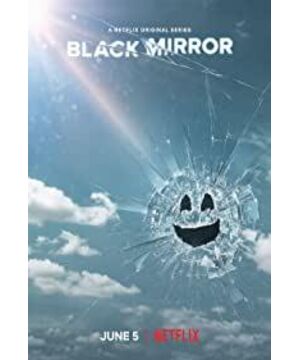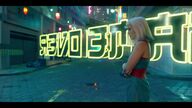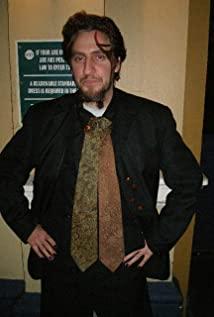The first episode: Anti-propagation, the fight between large and small screens, the control of the news.
TV has been invented less than a hundred years ago, but it has become a necessity of human life and is one of the most important news carriers.
In the beginning, he was only responsible for broadcasting the policies and regulations of his government and news from all over the world, appearing as the government's mouthpiece. News is still at the core of TV programs. Even if mobile phones and computers slowly steal part of the TV audience, it is difficult to shake the TV as the most important and authoritative news dissemination position. This can be seen from the fact that everyone in the empty lane at 40,000 in the afternoon of the first episode is waiting for the news to be released in front of the TV.
However, the ability and status of TV itself as a news dissemination has been blatantly provoked: youtube sent kidnapping news, Twitter broke the news that the prime minister was dropped, and even TV stations and Z&*¥F employees exchanged their naked photos for exclusive revelations. The news was fast and large. The total out-of-control brought about by the spread of the country is far beyond the control of rights.
At this time, Z&*¥F and TV stations as the disseminators of the news, and the people of the recipients of the news are all experiencing tests from time to time. Is the news true? Is the source of the information credible? How to show the facts? How to handle the wording? How to pass it to the audience? How does the audience give feedback? What are we looking at? Why do we want to watch these? . . . . . .
At the end, the expressions on the faces of all the viewers in front of the TV are disappointed with the role played by the TV and the seemingly powerful group behind the TV.
The princess staggered back to this city, but only saw the empty alleys. No one cares about the truth about the TV mobile network, everyone is just a slave to the news.
The second episode: entertainment is the supremacy, the role of the audience is reversed, and the revolutionary
television has developed to the present, and the business is the main body of the production of TV programs. They make a lot of fresh and interesting TV shows to stick to the audience and profit from them. In order to attract viewers, businesses have resorted to various means, and the scale has gradually widened.
At this time, the theme of TV is entertainment.
From the simple and gentle TV program to later selling pornographic violence, ridicule the disadvantaged groups, and even coaxed the audience to encourage them to "realize" their self-worth and come to the TV stage to perform hard, forming a virtuous circle of "the audience is the star, and the star is the audience" (?) . The business has figured out a truth at this moment: as long as the show is entertaining enough, someone will watch it. The three supporting roles in the film represent so many typical audiences:
A low EQ audience, they eat whatever TV gives. Good or bad (tempered man)
B. Blindly follower type viewers, what others watch, what they watch, without their own opinions, they have to listen to others’ opinions (blonde-haired male)
C rational viewers, know what they want to do, don’t believe in TV (pony-tailed girl) )
The environment of the second episode is very special, because everyone’s living space is occupied by television (to be exact, squeezed), people use exercise to maintain their survival and increase the possibility of expanding their living space, and your living space is only television.
Another interesting setting is that there is no advertising time, and you only need to spend money if you don't want to watch TV. That is to say, it is not the audience who consumes TV, but the TV is consuming the audience. Those who can't bear this kind of consumption become yellow men, at the bottom of the society, and are ridiculed by others.
Finally, the two protagonists challenged the lower and upper limits of entertainmentism.
The female protagonist looked at the supremacy of entertainment and consumerism from the perspective of innocence, awakening a part of the audience, but was immediately seduced by the time-tested program producers, and immediately turned from individual innocence to resist the blind obedience and complexity of the group, and became the group's anti-innocence to encircle and suppress individuals. Of simplicity.
The male protagonist couldn't stand the moral bottom line being trampled on, and tried to climb through the channels provided by the system, and finally took the stage to challenge the entire system. How can I expect that the judges (the judges are called hope, 囧) saw their tricks and took advantage of the anger of the minority led by the male lead to successfully consume the audience again.
I thought the story would end here, but I didn’t expect to confess to the male lead: the male lead has completely changed from a rebel of the system to a defender of the system. Although the living space has been greatly improved, what he faces is only The bigger screen makes him feel more comfortable and lonely.
Episode 3: Zero processing of TV content, integration of TV-viewer subject and object, self-consumption
I don’t know if you have noticed that TV has finally returned to its fundamental attribute in this episode: display. This is the TV is just a display screen.
The news that we are familiar with is gone, the TV shows are gone, and the TV is rebroadcasting the viewer’s own life, and it has become a prop to examine their own lives. Coupled with the surreal setting of the pupil camera, TV has truly fulfilled its glorious mission of "what you see is what you get".
The broadcasts are all authentic experiences, not political or artistic reprocessing. The subtext expressed is "We only believe in the real life we have experienced"-people's ideas have also changed. There is no TV program producer, only the naked truth.
And even if you believe the truth, there is a price to pay.
Reality, this naked reality, touches the audience's own psychological endurance all the time.
"What kind of things can I show to everyone?"
"Who do you want to show these experiences?"
"How do you react when you see it?". . . . . .
The protagonist in the film cannot answer such questions because the boundaries between the producer and the audience of the "TV show" are too blurred. The problem considered is beyond one person's control. Moreover, even if they see the same appearance, other viewers will have various explanations.
The producer of the first episode has a strong team and still can’t control the mood of the audience. The producer of the second episode won the audience but could not face the condemnation of conscience. In the third episode, the contradictory focus of the first two episodes is pushed to one. The ultimate is to persuade the audience, but also to maintain the original heart. Although the technology is advanced, it can't make up for the most direct impact of the real scene on the spectators.
There is no doubt that everyone is a "real" defeat. No one can bear all the negative emotions brought about by the reappearance of the real scene, even if the person you believe most is walking on the screen, and the hints revealed behind those images seem to be asking us, we pass through this thin piece of What exactly does the screen want? What show is worthy of trust? What is a show, and what is life?
Sitting on the sofa and watching TV is meant to relax, but you can turn off the noisy programs. The screen is like a black mirror, reflecting our own unsatisfied desires.
View more about Black Mirror reviews











